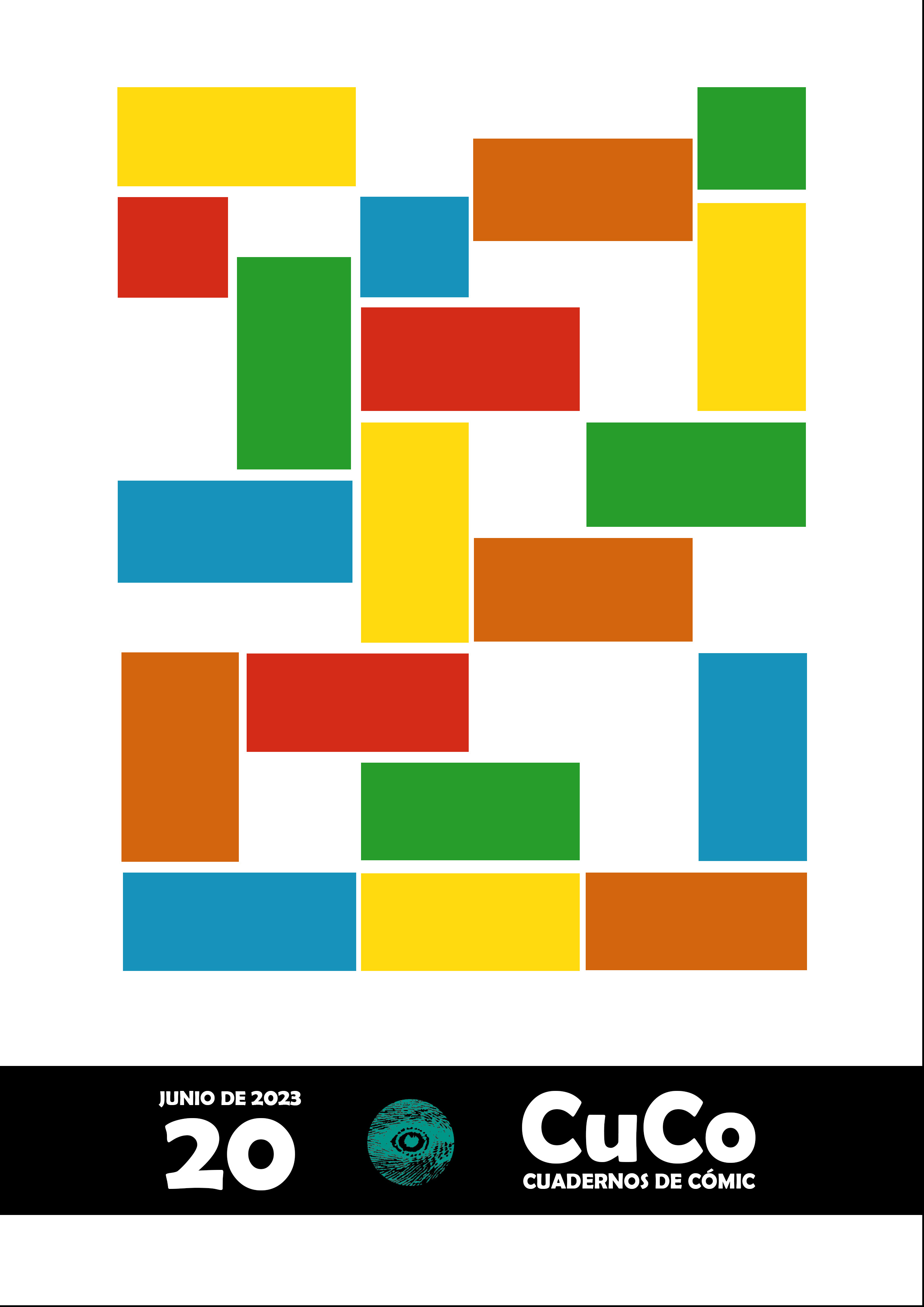INTERVIEW WITH ÁLVARO PONS «Formats are loaded with meanings, needs, and possibilities»: «Los formatos están cargados de significados, de necesidades y de posibilidades»
Published 2023-07-07
Keywords
- comics,
- culture,
- Pons,
- crítica,
- mercado
- comic studies ...More
How to Cite
Copyright (c) 2023 CuCo, Cuadernos de cómic

This work is licensed under a Creative Commons Attribution-ShareAlike 4.0 International License.
Abstract
Introduction/Summary:
A wise man of the comics, with his guard always up
Álvaro Pons Moreno (Barcelona, 1966) is the most important academic and critic specializing in comics in the Spanish-speaking world. He has read and studied comics produced within every known tradition or «school» of the genre. A physicist by decision and a reader of comics by vocation, as he defines himself, a few years ago he launched a careful selection of his works published for fifteen years in La Cárcel de Papel, a reference blog in Spanish for anyone who sees himself as a lover or reader of comics. Luis Alberto de Cuenca Prado, in the prologue of the compilation, describes Pons as «the guardian of comics.»
The title fits our interviewee well since he has played a crucial role in how comic books entered the world of legitimate culture in Spain. What is interesting is the multipositional character of the role played by Álvaro Pons; because just as he built a gigantic blog dedicated to the criticism, dissemination, and prescription of «an indefinable art», he was also a librarian, mediator, and cultural manager whose goal was to ensure that comics have their place in the institutional center of culture and the aesthetic expression of a society, as witnessed by his work as curator of exhibitions and coordinator of specific events.
Likewise, thanks to his work as director of the Chair of Comic Studies Fundación SM-Universitat de València (the first institutional and university space in Spain dedicated entirely to comics), Álvaro Pons completes the profile of guardian of comics, coming to sustain, perhaps controversially, that the use of the language of comics to carry out scientific research does not subtract one iota of the necessary academic rigor that all work of this caliber deserves, allowing the contribution of new methodologies of great interest in most fields of knowledge.
Next, it is well worth reviewing the conversation that, around October 2017, we had with Álvaro; in a hospitable corner of downtown Valencia, under the warm sun of the first days of autumn, so close to the serene waters of the Mediterranean.
Downloads
References
- COMA, J. Historia de los comics. Barcelona, Toutain Editor, 1982-1983.
- GARCÍA, S. La novela gráfica. Bilbao, Astiberri, 2010.
- LLADÓ, F. Los cómics de la transición (El boom del cómic adulto 1975-1984). Barcelona, Glénat, 2001.
- MASOTTA, O. La historieta en el mundo moderno. Editorial Paidós, Buenos Aires, 1970.
- MOIX, T. Los comics, arte para el consumo y formas pop. Llibres de Sinera, Barcelona, 1968.
- PÉREZ DEL SOLAR, P. Imágenes del desencanto. Nueva historieta española. Iberoamericana Editorial Vervuert, Frankfurt del Meno, 2013.
- PONS, A. La Cárcel de Papel. Diario de un lector de tebeos (2002 - 2016). Confluencias, Salamanca, 2017.

